- Our studies
- Our research
- Publications and resources
- Data access and training
- About
- News
- Events
- Get in touch
- Join our mailing list
Welcome to our news and blogs section. Here you’ll find the latest developments and insights from across our longitudinal studies.
Growing Up in Digital Europe (GUIDE) is the UK pilot of a major European initiative to create internationally harmonised data for research on child development and wellbeing.
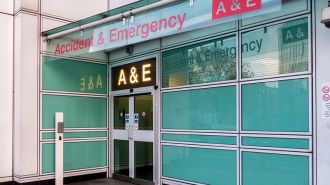
Information from the NHS about cohort members’ health care and treatment in hospitals has now been linked to two longitudinal cohort studies, which have collected survey data over six decades – the 1958 National Child Development Study (NCDS) and the 1970 British Cohort Study (BCS70).
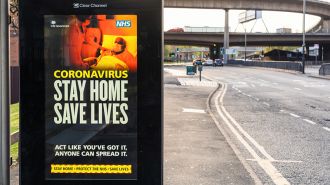
With the whole country in lockdown again, the UCL Centre for Longitudinal Studies (CLS) is conducting another web survey of thousands of cohort study participants, to find out how the COVID-19 pandemic continues to affect the lives of different generations of people in the UK.
The Centre for Longitudinal Studies (CLS) has redeposited data from the 1958 National Child Development Study (NCDS) 2002-2004 Biomedical Sweep, with most data now available to researchers under the UK Data Service’s standard access arrangements (End User Licence) for the first time.
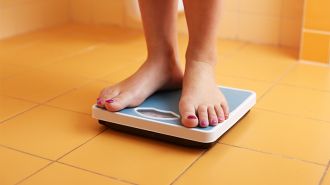
More than one third of UK teenagers are starting adult life with excess weight (either overweight or obese), and rates are even higher among the poorest, finds a new study led by UCL researchers.

Researchers from around the world have been using CLS study data to tackle important questions. Here is a round-up over 100 new pieces of research that we’ve added to the CLS bibliography between April and September 2020.
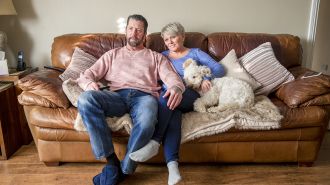
Almost three quarters of British middle-aged adults spend more than eight hours sitting each day, new objective data taken from activity monitors has shown.
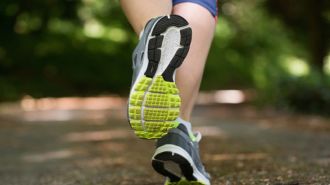
A new, searchable, online guide on physical activity measures used in six longitudinal studies, including the 1958, 1970 and Millennium birth cohorts, has been launched by CLOSER.

Celebrating 50 years of the 1970 British Cohort Study – The Age 26 Sweep was the first adult follow-up of BCS70, and over 9,000 cohort members took part.
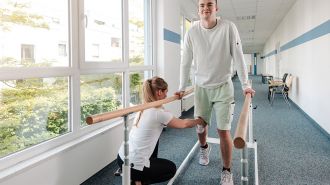
Researchers tracking the experiences of the millennial generation can now explore a wider range of health-related questions, thanks to a pioneering new agreement which enables secure onward sharing of NHS Digital data linked to Next Steps via the UK Data Service.
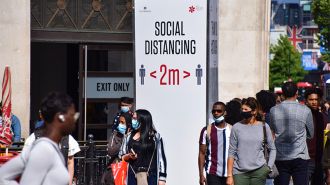
The Centre for Longitudinal Studies (CLS) has secured funding from the Economic and Social Research Council (ESRC), to further its investigation into the immediate and longer term impacts of the COVID-19 pandemic on people in Britain.
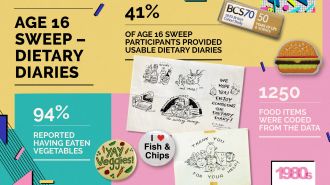
Celebrating 50 years of the 1970 British Cohort Study – During the Age 16 Sweep study members were given a 4-day dietary diary to complete. Analysed alongside dietary data from later sweeps, this information may help us to understand adult eating patterns, and health outcomes such as obesity and diabetes.

CLS is seeking input on the first draft questionnaire of the Age 31 Sweep of Next Steps, a longitudinal cohort study following 16,000 people born in England in 1989-1990.
Ryan Bradshaw
Senior Communications Officer
Phone: 020 7612 6516
Email: r.bradshaw@ucl.ac.uk